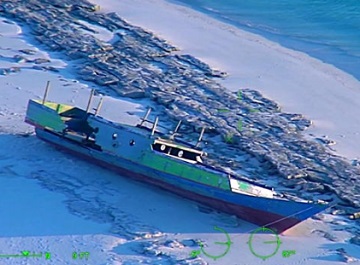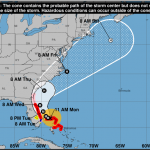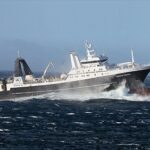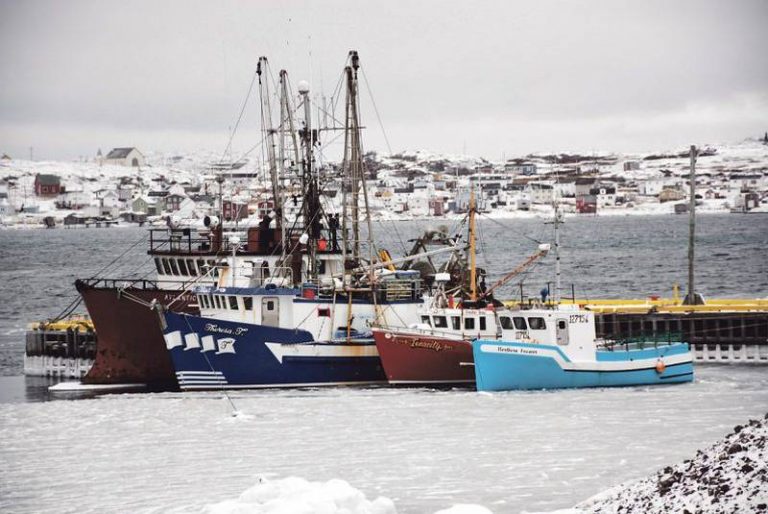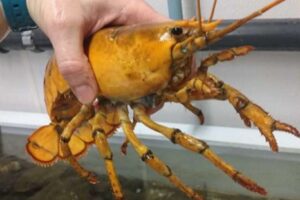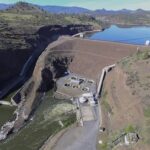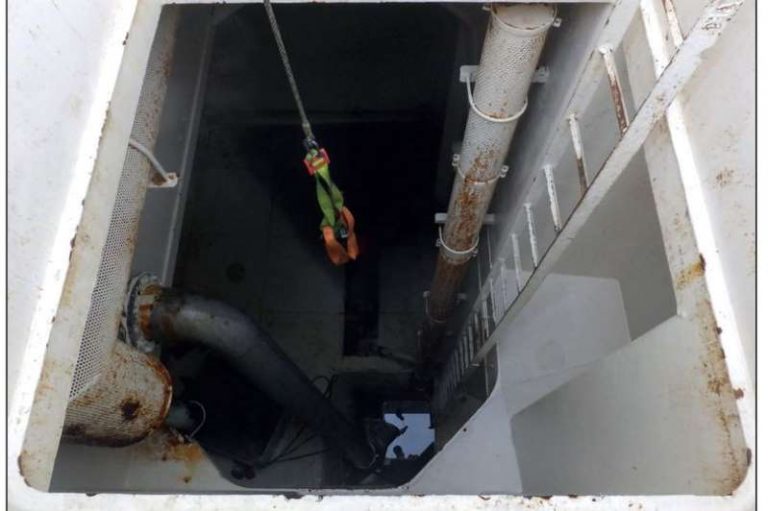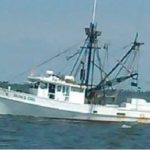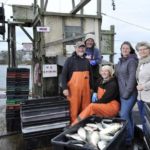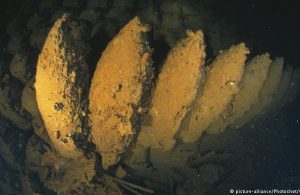Tag Archives: Western Australia
San Remo rock lobster priced for Christmas
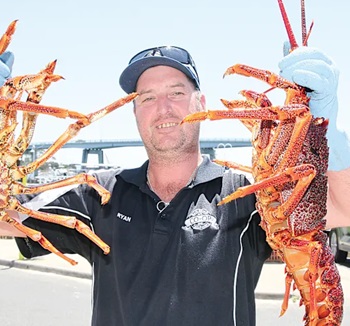 Light catches for the opening of the rock lobster season have seen prices for live crays at the San Remo Fisherman’s Co-op rise to a wallet stretching $120 a kilogram. One lobster weighing two and a half kilograms will set you back $300 cooked or claw-snapping live. Ryan Stephens, Seafood Manager of San Remo Fisherman’s Co-Op said the two biggest lobsters caught so far this season are still in his tanks waiting for one or two lucky families this Christmas. “The best crays are the older ones with coral on their shell,” said Ryan. “Cleaner-looking crays have moulted and grown a new shell.” more, >>CLICK TO READ<< 14:55
Light catches for the opening of the rock lobster season have seen prices for live crays at the San Remo Fisherman’s Co-op rise to a wallet stretching $120 a kilogram. One lobster weighing two and a half kilograms will set you back $300 cooked or claw-snapping live. Ryan Stephens, Seafood Manager of San Remo Fisherman’s Co-Op said the two biggest lobsters caught so far this season are still in his tanks waiting for one or two lucky families this Christmas. “The best crays are the older ones with coral on their shell,” said Ryan. “Cleaner-looking crays have moulted and grown a new shell.” more, >>CLICK TO READ<< 14:55
Commercial lobster fishers want total catch cut to help save WA fishery
 Commercial fishers in Western Australia’s $285 million lobster industry say warning bells are ringing for the sector’s future sustainability, despite reassurances from state government scientists that stocks are at healthy levels. The commercial lobster industry is concerned due to the number of baby lobster, known as puerulus, being found along the coast, along with falling catch rates and revised economic modelling. As a result, the industry has requested its total catch be dropped next season from the current limit of 7,300 tonnes to 6,800 tonnes. Cervantes based fisher Michael Thompson supported the catch reduction and said it could have gone lower. “Our puerulus since 2007 till today is 50 per cent lower than what we used to receive back to the coast to our collectors,” he said. Photos, more, >>CLICK TO READ<< 10:02
Commercial fishers in Western Australia’s $285 million lobster industry say warning bells are ringing for the sector’s future sustainability, despite reassurances from state government scientists that stocks are at healthy levels. The commercial lobster industry is concerned due to the number of baby lobster, known as puerulus, being found along the coast, along with falling catch rates and revised economic modelling. As a result, the industry has requested its total catch be dropped next season from the current limit of 7,300 tonnes to 6,800 tonnes. Cervantes based fisher Michael Thompson supported the catch reduction and said it could have gone lower. “Our puerulus since 2007 till today is 50 per cent lower than what we used to receive back to the coast to our collectors,” he said. Photos, more, >>CLICK TO READ<< 10:02
Rock star fishery booming in Western Australia, as octopus catch quadruples
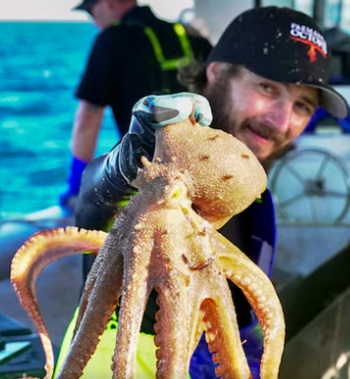 In a world hungry for healthy sustainable protein, WA’s western rock octopus is a rising star. It’s wild caught, all natural and has no adverse impact on the environment, according to the Fremantle Octopus company’s general manager Emma Davison. “Octopus has more iron and more protein than red meat,” Ms. Davison said. The Fremantle company dominates the relatively new octopus fishery. About 70 per cent of its current market is for raw tentacles favoured by high-end restaurants. The in-demand mollusc is the rock star of Australia’s commercial fishing industry. Since it was established as a managed fishery in 2015 the annual catch has increased by 400 per cent. Photos, more, >>CLICK TO READ<< 20:31
In a world hungry for healthy sustainable protein, WA’s western rock octopus is a rising star. It’s wild caught, all natural and has no adverse impact on the environment, according to the Fremantle Octopus company’s general manager Emma Davison. “Octopus has more iron and more protein than red meat,” Ms. Davison said. The Fremantle company dominates the relatively new octopus fishery. About 70 per cent of its current market is for raw tentacles favoured by high-end restaurants. The in-demand mollusc is the rock star of Australia’s commercial fishing industry. Since it was established as a managed fishery in 2015 the annual catch has increased by 400 per cent. Photos, more, >>CLICK TO READ<< 20:31
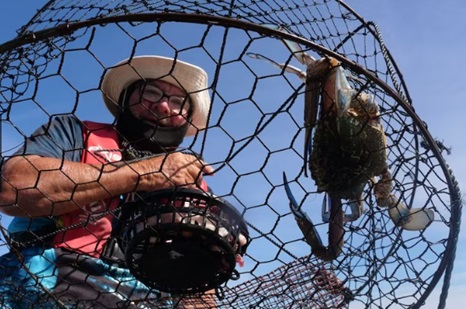
Leap year 21st birthday bash finally comes around for retired Dongara crayfisherman Chocka
Bill Kearns has reached a milestone a little later than most. The retired cray fisherman from the small coastal town of Dongara, 350 kilometres north of Perth, is celebrating his 21st birthday. But age can be deceiving. Mr Kearns, known around town as “Chocka”, was born on the 29th of February, 1940. It makes him 84 years old this year, but being born on a leap year means his real birth date only comes up every four years. He spent almost 30 years working on boats and still loves getting out on the water. “Now I’m just recreational fishing, with a couple of pots to catch a few crays,” he said. Photos, vide, more, >>click to read<< 12:44
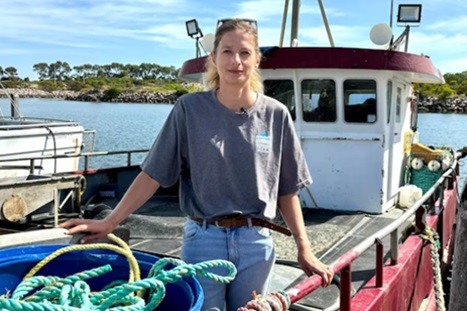
Tourism, Indigenous groups welcome WA’s South Coast Marine Park, but opposition from commercial fishers
The Western Australian government has proposed closing a quarter of waters between Bremer Bay and the South Australian border to all fishing under its new south coast marine park plan. The proposed park will span 1,000 kilometres of coastline, with the aquatic activities allowed in some areas unchanged, others reduced, and some banned altogether. Manue Daniels has been fishing commercially from Esperance with her family for 15 years. She said the consultation process had been long, frustrating and taken a toll on her mental health. Ms Daniles said she still hoped the government would do the right thing. “I think it just shows that this government puts no value towards what we do. We are just second-class citizens,” she said. more, >>click to read<< 14:55
Get to know your local western rock lobster fisher and their produce
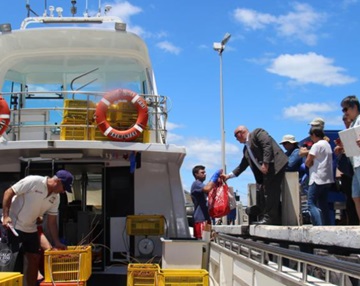 It’s a warm summer’s day in December with a light breeze blowing in from the ocean. You’ve dragged your mum, boyfriend, sister, cousin or friend along to join the locals and tourists down at the port to get your hands on the freshest and best crustacean in the world, right in time for the Christmas festivities that are around the corner. The rock lobster you purchased has just been caught by the commercial fishermen, kept in a live tank until the point of landing at port and then weighed and put on ice in your esky. Thanks to Western Rock Lobster’s Back of Boat (BoB) initiative, this is a reality for seafood lovers and fishers across the state. more, >>click to read<< 08:30
It’s a warm summer’s day in December with a light breeze blowing in from the ocean. You’ve dragged your mum, boyfriend, sister, cousin or friend along to join the locals and tourists down at the port to get your hands on the freshest and best crustacean in the world, right in time for the Christmas festivities that are around the corner. The rock lobster you purchased has just been caught by the commercial fishermen, kept in a live tank until the point of landing at port and then weighed and put on ice in your esky. Thanks to Western Rock Lobster’s Back of Boat (BoB) initiative, this is a reality for seafood lovers and fishers across the state. more, >>click to read<< 08:30

Australia: Coastal wind farms – This Sunday, the people say ‘no’ again
When the first coastal wind farms were announced by Energy Minister Chris Bowen, I thought I was dreaming. Australia has some of the best beaches in the world. People come to this country to see its unspoilt natural beauty. Despite a 42 per cent decline following the lockdowns, tourism remains Australia’s 14th-largest export industry. Along with education, it is one of the most sustainable industries that contributes to our standard of living. Nobody wants to come to Australia to see rotting wind turbines at our beaches. They can visit their own failed renewable energy white elephants at home. To make matters worse, our energy minister is pitching his vibe to elite activists while refusing to listen to ordinary Australians. Today they will gather in the surf near Port Stephens. The protest is called Paddle Out. >>click to read<< 10:21
Study of seismic testing used in offshore oil, gas and wind energy industries finds lobsters ‘concussed’
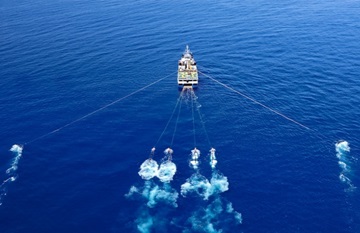 Seismic testing critical to Western Australia’s offshore oil, gas and energy industries is dazing, and potentially killing the state’s valuable western rock lobsters, a new study has found. The practice is essential to offshore oil and gas exploration and the construction of wind turbines, and involves firing powerful air guns, creating soundwaves that penetrate the ocean floor. But research by the WA government’s Department of Primary Industries and Regional Development has found lobsters exposed to the testing are significantly impacted. Offshore crustaceans scientist Simon de Lestang studied the behaviour of lobsters after they were exposed to seismic testing conducted offshore, in shallow water south of Geraldton. >>click to read<< 11:05
Seismic testing critical to Western Australia’s offshore oil, gas and energy industries is dazing, and potentially killing the state’s valuable western rock lobsters, a new study has found. The practice is essential to offshore oil and gas exploration and the construction of wind turbines, and involves firing powerful air guns, creating soundwaves that penetrate the ocean floor. But research by the WA government’s Department of Primary Industries and Regional Development has found lobsters exposed to the testing are significantly impacted. Offshore crustaceans scientist Simon de Lestang studied the behaviour of lobsters after they were exposed to seismic testing conducted offshore, in shallow water south of Geraldton. >>click to read<< 11:05
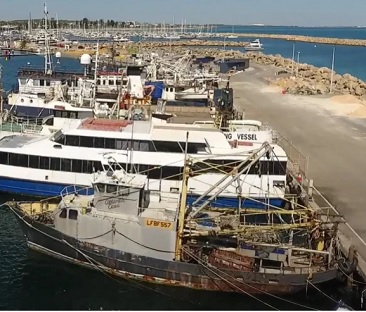
The ghost ships clogging up WA’s marinas and waterways
The Department of Transport has spent more than $1.1 million in the past four years removing and disposing of 43 vessels abandoned at marinas and on WA waterways. These cases normally take several years to resolve, but the latest vessel in Mark Briant’s sights was also the longest case the department has dealt with in its history. The 70-tonne, 17.8-metre fishing trawler Atlantic Ocean has been a familiar sight in the Fremantle Fishing Boat Harbour for more than 20 years, but the department declared it abandoned in 2018. Its hull is covered in rust and, at 62 years old, the Atlantic Ocean’s best days are well and truly behind it. >>click to read<< 16:10
Fishing industry welcomes move as WA government puts proposed legislation on ice
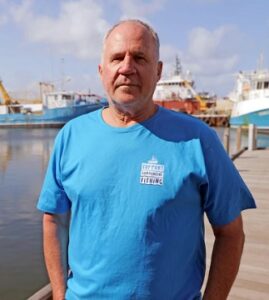 New fishing laws a decade in the making have been put on hold by the Western Australian government just months before they are due to come into force. The Aquatic Resources Management Act (ARMA) was to be governing legislation for the recreational and commercial fishing industries, replacing the 1994 Fish Resources Management Act and the Pearling Act 1990. It was due for enactment on November 1. However, mid-last month, the government told the industry it would be delayed indefinitely. WA Fishing Industry Council chief executive Darryl Hokey welcomed Fisheries Minister Don Punch’s move to delay the ARMA legislation, saying it was not ready due to “ambitious and rushed consultation” in its final preparation stages by a “gutted” state department. >click to read< 11:20
New fishing laws a decade in the making have been put on hold by the Western Australian government just months before they are due to come into force. The Aquatic Resources Management Act (ARMA) was to be governing legislation for the recreational and commercial fishing industries, replacing the 1994 Fish Resources Management Act and the Pearling Act 1990. It was due for enactment on November 1. However, mid-last month, the government told the industry it would be delayed indefinitely. WA Fishing Industry Council chief executive Darryl Hokey welcomed Fisheries Minister Don Punch’s move to delay the ARMA legislation, saying it was not ready due to “ambitious and rushed consultation” in its final preparation stages by a “gutted” state department. >click to read< 11:20
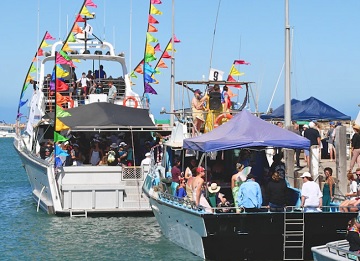
Dongara Blessing of the Fleet festival marks 50 years of celebrating the community’s fishing industry
The Blessing of the Fleet tradition has evolved over time and was first introduced in Western Australia at Fremantle in 1948. Decades later, the local chamber of commerce and industry hosted Dongara’s first Blessing of the Fleet in 1973 on the Denison foreshore. But blessing is a centuries-old tradition, with roots in southern Europe. Saturday marked 50 years since the event started in the Midwest coastal town, with about a dozen decorated vessels parading the Port Denison marina in front of hundreds of people. photos, >click to read< 09:05
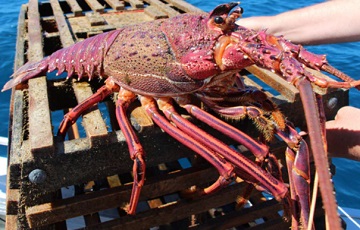
WA crayfish are about to turn in unison and head for deeper waters on ‘whites run’
Millions of crayfish are set to descend into deep waters off WA’s coast this week, in a “unique” migratory march. The annual “whites run” is a natural phenomenon in which juvenile western rock lobsters from Bunbury to Kalbarri moult their red shells, becoming pale and soft. They then turn to exactly 283 degrees north-west and move from shallow coastal reefs to deep water. “And once they get into that loop and current, they turn and walk into the current and they walk northwards.” Dr de Lestang said lobsters tapped into magnetic forces in much the same way as homing pigeons. >click to read< 15:55
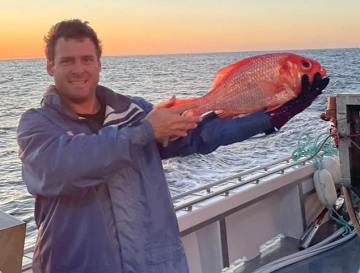
Commercial fishers in Western Australia say fuel costs will push up seafood prices
Petrol prices have surged by more than 25 per cent since the start of the year. The dramatic price increase has led some in the industry to make hard decisions around what to charge for their catch, warning it could lead to less local produce on the plate. Bunbury commercial fisher Brian Simone said his prices were based on a fuel price between $1 to $1.50 litre. However, he said a surge in fuel costs beyond $2 a litre was making it hard to sell his fish. Mr Simone said in his 45 years in the industry he had not seen the price of fuel rise so quickly. “We started off 20 cents a litre back in ’79, and now it’s $2.50 a litre,” he said. >click to read< 11:04
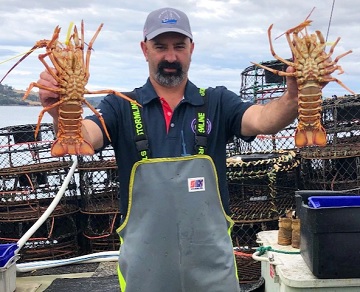
Fishers struggle as lobster ‘nearly as cheap as chocolate’
A dramatic collapse in export markets has flooded Australia with large quantities of cheap lobsters selling for as little as $35 a kilogram. At that price, fishers struggle to break even and processors are not getting enough orders to chew through the oversupply of fish, with one describing the price as “nearly as cheap as chocolate”. “I’m hearing fishermen struggling to maintain deckhands because they’re not earning enough money, fishermen talking about having to get a second job,” Mr Blake said. “It’s been very challenging.” Fishers used to sell lobsters into China for around $100 per kilogram but the industry has been locked out of that market since the outbreak of covid. >click to read< 08:04
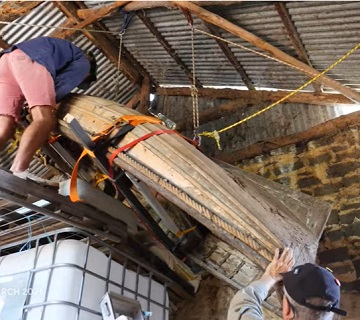
Historic lifeboat from shipwrecked Maid of Lincoln rescued, restored, and needs a new home
A 137-year-old historic lifeboat rescued from the rafters of an old farm shed is now restored and in need of a public home. The lifeboat, which had hung in the shed’s rafters for decades, came from the Maid of Lincoln which was shipwrecked and sunk off Jurien Bay in the Mid West of Western Australia in 1891. It came to the attention of archaeologist Bob Sheppard who organised its rescue in March last year. Once it was safely removed from the rafters, Jurien Bay local Ron Snook took to lovingly restoring it. With the job now complete, the lifeboat is in need of a home. Video, >click to read< 12:53
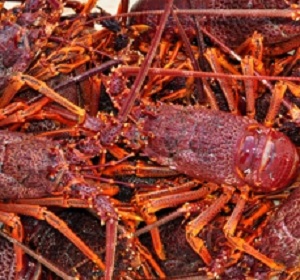
Australian lobsters back on the Chinese menu as ‘grey trade’ fires up again
Australian lobster fishermen shut out of mainland China appear to be selling millions of dollars’ worth of crayfish to the once-booming market via unofficial “grey channels”, trade experts say. Commercial fishers across the country were left reeling in November when China appeared to impose an unofficial ban on Australian lobster exports that had been worth hundreds of millions of dollars. The suspension effectively stopped the trade with China, which had been buying more than 90 per cent of lobsters exported from Australia. >click to read< 11:48
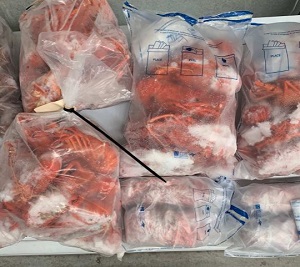
Family fined $70,000 over black market rock lobster sales
A family from the WA Midwest fishing community of Leeman has been ordered to pay more than $70,000 in fines and costs after selling 76 black market Western Rock Lobster to undercover officers during an operation between June 2018 and April 2019. Ronald Francis Dennis, 29, and his parents Ronald George Dennis, 67, and Lorna Francis Weeks, 67, were caught in the sting selling lobsters to undercover Fisheries officials on four occasions. >click to read< 10:15
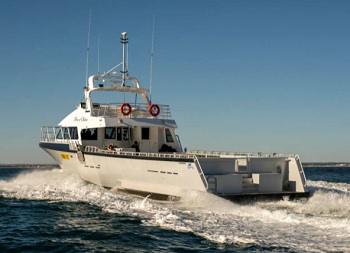
Our latest lobster boat: Force of Nature
Completed in late April 2020, some 12 months after contracts were signed, Force of Nature is a 22.4 metre Southerly Designs monohull which, like other recent Dongara Marine fishing and pilot boat newbuilds, combines an aluminium hull with a composite superstructure. The new boat is an upgrade from Perham’s current vessel, the 17.1 metre Conquest 55 Natural Selection, which was built for him by Sea Chrome Marine in 1994 and which Perham is selling to make way for Force of Nature.,, “When Natural Selection was built it was pretty much the average size crayboat, perhaps slightly above average if anything. In the 1990s only a handful of new boats, maybe one in every 20, were over 70 feet. Now that’s the average size for new Australian high speed lobster boats, and in fact its more like 75 feet for the Western Australian fishery. photo’s, video, >click to read< 14:29
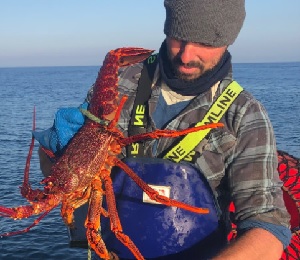
‘Lobsters overboard’ as China bans live seafood trade over coronavirus fears
Australia’s seafood industry has been thrown into crisis by the ban, with local fishermen considering a plan to return thousands of lobsters to the open waters. The export industry has ground to a halt in Victoria, Western Australia, South Australia and Tasmania as China usually imports about 90 to 95 per cent of locally-grown lobsters. >click to read< 16:47
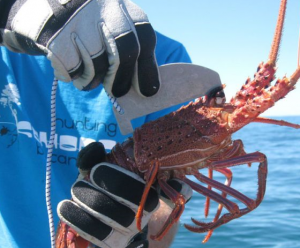
Rock lobster industry rejects new WA deal that would increase supply for local consumers
The draft agreement was struck in February after the Government was forced to back down on its previous plan to take control of more than 17 per cent of the industry. But despite three months of negotiations the Government and the Western Rock Lobster Council (WRLC) could not agree on a mechanism to deliver up to 315 tonnes of additional lobster for the WA market. Two proposals to deliver the additional domestic supplies were developed by the Department of Primary Industries and Regional Development and the WRLC, the Government said. ‘Government has destroyed all goodwill’: Nahan >click to read<15:21
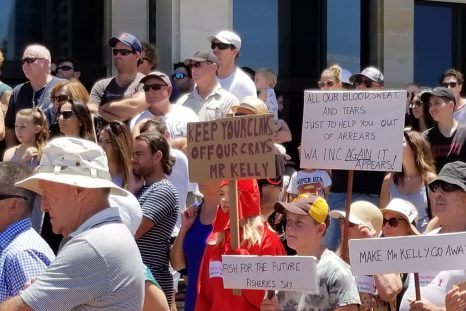
Western Australia lobster families rally for industry’s future after government’s ‘cray grab’ announcement
WA lobster families took to the steps of Parliament House on Sunday to raise their concerns over the government’s plan to seize a sizeable portion of their catch. Over a 100 people stuck the sticker “Fishing Families Matter” over their clothes, and some spray-painted it onto their surfboards and sticks. Ana Paratore opted for a more creative approach to voice support for her second-generation crayfisherman husband, James. She stuck the sticker on her pregnant belly to show that the coming generation would also be impacted. >click to read<08:42
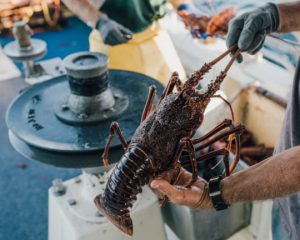
‘Only the beginning’: waking up to the great lobster grab of 2019
Governments do sneaky things at Christmas. They put out bad policy when the media is distracted, in holiday mode and under-resourced, in the hope no one will thoroughly analyse ideas that need intense scrutiny and research. Massive, damaging cuts are couched in language designed to appeal to voters and con busy reporters. Last year, it was cuts to regional education. Almost exactly twelve months later Fisheries Minister Dave Kelly released this gem: Boost for WA jobs and local lobster supply from WA’s most iconic fishery. Sounds terrific. And with the agreement of the crayfishing industry: “Western Rock Lobster (Council), have agreed on an innovative industry development package that will substantially grow the industry to provide more benefits to the Western Australian community.” Nothing to see here. Only good news. The truth begins to emerge,,, >click to read<13:16
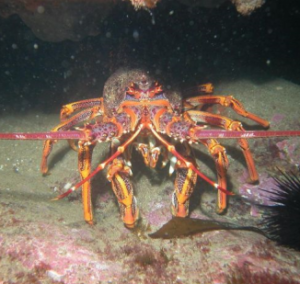
Western Australia lobster industry gets boost
The Western Australian government plans to grow the lobster industry and boost local lobster supply. In early-November, the government explained there could be a potential growth of 500 jobs and economic growth within the industry. Fisheries minister Dave Kelly said more than 95 per cent of commercially caught the region’s rock lobster is exported to China. “Little flows into our local market for the enjoyment of Western Australians and tourists.>click to read<
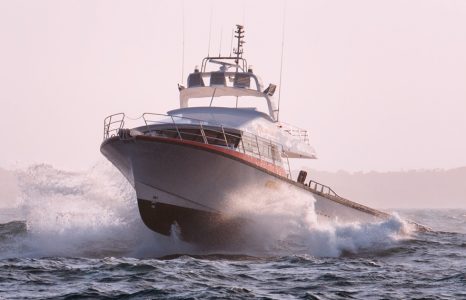
Australia’s Largest High-speed Lobster Boat Delivered
Dongara Marine has delivered Australia’s largest capacity high-speed lobster boat, the 85-foot Holdfast. With capacity for 210 baskets or 6.2 metric tons of live lobster, Holdfast is the fourth 20+ meter lobster boat in as many years to be designed by Southerly Designs, joining Ohana (2015), Daydawn (2016), and Gambler (2017). Although not the lead builder for the Daydawn and Gambler projects, Dongara Marine played a key role as the manufacturer of their resin-infused composite wheelhouses. >click to read<
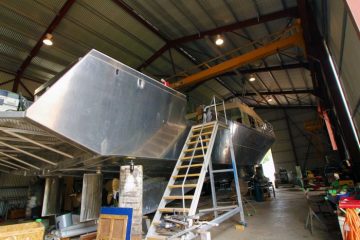
Lobster boat building boom in Western Australia a boost for quality catch, regional jobs
Record-sized rock lobster boats under construction in a small coastal town are driving a boat building employment boom in Western Australia. Fuelled by higher prices for their catch, some WA lobster fishermen are investing in newer, bigger boats, while others are expanding the carrying capacity of their existing boats. Dongara fisherman Clay Bass said he was spending about $4 million on a boat which would hold 6.5 tonnes of catch. click here to read the story 10:15
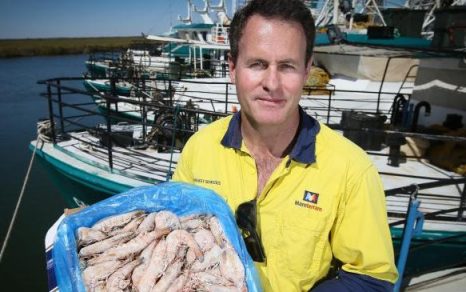
Prawn trawlers sit idle as fishermen turn to 457 visas for labour
It’s a boom season for the Carnarvon fishing fleet with colder water than usual in Western Australia’s protected Shark Bay spawning a bountiful king prawn and scallop catch. James Clement, marine biologist, former AFL footballer and head of the biggest trawler fleet licenced to fish Shark Bay, owned by ASX-listed company Mareterram, isn’t celebrating just yet. Despite the plentiful high-priced prawn harvest pouring into Mareterram’s Carnarvon wharf and packing sheds — the Shark Bay prawn season runs from late March to October — Mr Clement is having trouble keeping his 10 trawlers at sea for their 21-days-a-month continuous fishing time. A shortage of reliable labour and experienced fishing crew is hampering Mareterram’s total prawn catch, with issues including stress, inexperience, drugs and alcohol forcing some boats to return to port early mid-month to offload jittery crew before the scheduled full moon 10-day lay-off. click here to read the story 10:43
Fisherman backs shark-cull tourism
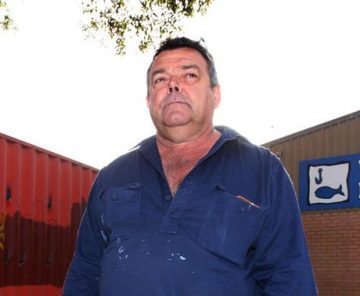 A third-generation Albany commercial fisherman has weighed into the ongoing shark cull debate, suggesting that the State Government explore the prospect of giving charter operators the licence to catch great white sharks as a tourism venture. Tony Westerberg, who has fished off the waters of the south coast for more than 40 years, says the ramifications of the reduction of shark fishing licences were evident, with surfers and divers continually being attacked. Teenager Laeticia Brouwer was the 15th person to be killed by a shark in WA since 2000 when she was attacked while surfing with her father in Esperance last month, prompting the debate’s reignition. click here to read the story 18:34
A third-generation Albany commercial fisherman has weighed into the ongoing shark cull debate, suggesting that the State Government explore the prospect of giving charter operators the licence to catch great white sharks as a tourism venture. Tony Westerberg, who has fished off the waters of the south coast for more than 40 years, says the ramifications of the reduction of shark fishing licences were evident, with surfers and divers continually being attacked. Teenager Laeticia Brouwer was the 15th person to be killed by a shark in WA since 2000 when she was attacked while surfing with her father in Esperance last month, prompting the debate’s reignition. click here to read the story 18:34
WA’s scallop quota doubled after stock recovery
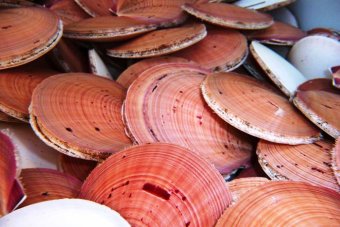 The quota for WA’s commercial scallop fishery has almost doubled this season, due to a recovery of stocks after a marine heatwave in 2010/11. Fishermen will be able to take 330 tonnes in 2017, compared to 166 tonnes last season. Department of Fisheries principal scientist Mervi Kangas said the speed of recovery in the Shark Bay fishery had quickened.”The stocks are recovering. Denham Sound, which was the key area where most of the scallop take came from, has actually recovered,” Ms Kangas said. “The northern part of Shark Bay is still recovering, but it is improving each year.” continue reading the story here 19:57
The quota for WA’s commercial scallop fishery has almost doubled this season, due to a recovery of stocks after a marine heatwave in 2010/11. Fishermen will be able to take 330 tonnes in 2017, compared to 166 tonnes last season. Department of Fisheries principal scientist Mervi Kangas said the speed of recovery in the Shark Bay fishery had quickened.”The stocks are recovering. Denham Sound, which was the key area where most of the scallop take came from, has actually recovered,” Ms Kangas said. “The northern part of Shark Bay is still recovering, but it is improving each year.” continue reading the story here 19:57
WA Fisheries shark research lacks competency
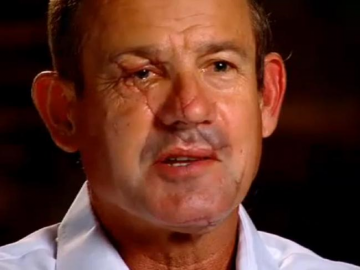 Greg Pickering said any study of great white shark numbers needed to involve veteran spearfishing and fishing enthusiasts as well as abalone divers and commercial fishermen. “I’ve got to question their competency,” said Mr Pickering, a veteran of 34 years as an abalone diver and spearfisherman who survived 10 hours of surgery to his face and chest after he was bitten by a great white shark during a dive 180km east of Esperance in 2013. “People have stopped listening to Fisheries because they keep saying, ‘Our data doesn’t show any increase in numbers’. But maybe it’s the way they collect their data. “I’ve been attacked by a shark twice, spent half my life in the water, kept records of everything I’ve seen on every dive since 1983 but I’ve never had a call or an email. “There are a lot of guys with 30 or 40 years in the field with significant information to contribute. They’re in the water every day. You can’t pay for that sort of field work. But (Fisheries) feel they don’t need to talk to us because we don’t have a letter in front of our name saying, ‘Doctor so and so’.” Read the story here 18:42
Greg Pickering said any study of great white shark numbers needed to involve veteran spearfishing and fishing enthusiasts as well as abalone divers and commercial fishermen. “I’ve got to question their competency,” said Mr Pickering, a veteran of 34 years as an abalone diver and spearfisherman who survived 10 hours of surgery to his face and chest after he was bitten by a great white shark during a dive 180km east of Esperance in 2013. “People have stopped listening to Fisheries because they keep saying, ‘Our data doesn’t show any increase in numbers’. But maybe it’s the way they collect their data. “I’ve been attacked by a shark twice, spent half my life in the water, kept records of everything I’ve seen on every dive since 1983 but I’ve never had a call or an email. “There are a lot of guys with 30 or 40 years in the field with significant information to contribute. They’re in the water every day. You can’t pay for that sort of field work. But (Fisheries) feel they don’t need to talk to us because we don’t have a letter in front of our name saying, ‘Doctor so and so’.” Read the story here 18:42






